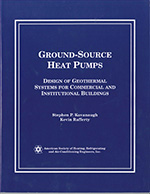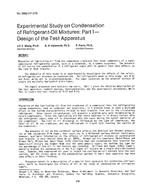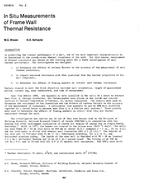Environmental concerns and limited energy supply todaymakeenergy storage very important, especially in solar energyutilization. The latent heat storage method has the advantageof storing a large amount of energy in a relatively smallvolume. Achieving thermal energy storage with latent heatapplication using phase-change materials (PCMs) involvesthe heat of fusion at the solid-liquid phase transition. The problemwith today’s PCMs is that their very low thermal conductivityvalues severely limit their energy storage capability. Thisalso makes the melting and solidification times too long formeeting the desired results. Investigations to solve thisprobleminclude improved design configurations and addition ofnanoparticles to the PCM to enhance the thermal conductivity.
This study is on the effects of nanoparticle dispersion in the melting of a PCM in a triplex-tube heat exchanger heated under constant surface-temperature conditions. The governing equations for the configuration and process were discretized via the finite volume method and solved numerically. The developed model, which was validated, shows good agreement when compared to a previous related experimental study. The computations were performed for nanoparticle volume fractions ranging from 1% to 3%. The results, shown in the form of isotherms and contours of the solid-liquid interface over different periods of charging time, are presented and discussed.The results show an enhancement in the melting rate with doping nanoparticles of different volumetric concentrations. The results also show melting time savings of 17% as a result of adding nanoparticles to the PCM for a nanoparticle volume fraction of 1%. Higher-volume fractions were found to not result in significant melting time savings for the process in the triplex-tube heat exchanger.
Citation: 2016 Annual Conference, St.Louis,MO, Transactions 2016, Vol 122 pt. 2
Product Details
- Published:
- 2016
- Number of Pages:
- 10
- Units of Measure:
- Dual
- File Size:
- 1 file , 2.5 MB
- Product Code(s):
- D-ST-16-022


